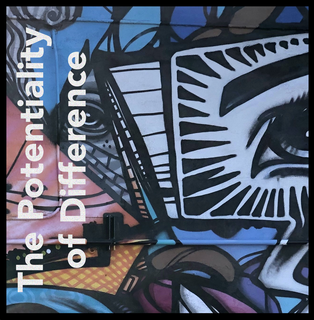The Potentiality of Difference
Singular Rhythms of a Translational Humanities in Community Contexts
Categories that ascribe particular languages to particular nation-states have, as comparative literature scholar Emily Apter (2008) puts it, "exceeded their expiration date" (p. 558). This is true as much for such categories' damaging imperialistic consequences as for their obsolete structural assumptions. Their limits may be rather self-evident. But how to move beyond those limitations in the service of the humanities poses invigorating methodological challenges, as demonstrated across this book’s three cases.
To contribute to this conversation, this study pursues untranslatability, defined here as the potentiality of difference that defies translation from one language to another and at the same time fuels the momentum of world-building in and across cultural differences. As we detail, among the dynamics complicating untranslatability in community contexts are the politics of knowledge production, including both the tendency to negate that which is "different" from "the same" (Muckelbauer, 2008) and to undercut the epistemic status of underrepresented stakeholders (Simmons, 2007). Regarding the latter, people will find some way to shut down or walk away when rendered instrumental—that is, when rendered as means toward someone else's interests.
Attentive to such dynamics, the three of us turned to rhythmanalysis, a mode of analysis for the critique of everyday life articulated by Henri Lefebvre (1992/2017). Our aim in turning to rhythmanalysis was to assemble methods capable of attending to and participating in what people were doing, and what they were devising, when venturing generative alternatives to the blunt exercise of rationality and power—specifically, when what they were venturing depended at least in part on that which is untranslatable. Part I establishes the theoretical and methodological basis for the study, as well as our own subject positions in relation to the work of the project. Part II puts three cases in relation to one another and seeks to perform what a critical-generative humanities can look like and what it can do when taking up untranslatability in community contexts. The book concludes by offering implications for practicing a critical-generative humanities.

Recent Activity
Text Added Project Kickoff A Intermezzo project is born!
The Potentiality of Difference
Metadata
- isbn978-1-7339598-2-7
- publisherIntermezzo
- publisher placeLexington, KY
- rightsPublished Under an Attribution-Noncommercial-Sharealike Creative Commons License
- rights holderIntermezzo
- series number13
We use cookies to analyze our traffic. Please decide if you are willing to accept cookies from our website. You can change this setting anytime in Privacy Settings.
